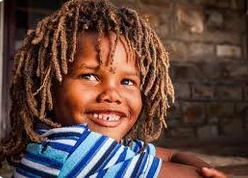
support@yorubalibrary.com
+2348073529208, 07038599574

The miracle of birth is a moment of transition, a journey from the world of the womb to the tangible world of life. But sometimes, this transition is marked by a powerful visual symbol—a child who arrives still enclosed in the caul, the unruptured amniotic membrane. In Yoruba culture, this rare and extraordinary birth is seen as a profound spiritual event. This child is named Ọ̀kẹ́, a name that signifies elevation, mystery, and a connection to the other side. A child born veiled in this way is not just a newborn; they are considered a seer, a guardian of ancient wisdom, arriving with a unique purpose.
The Significance of the Name Òkè
The name Ọ̀kẹ́ carries powerful and layered meanings. In the context of an Àmútọ̀nwá, the name Òkè is connected to the child's physical state at birth. Being born within the amniotic sac, or "caul," is interpreted as being born "with a veil." This veil is not seen as a barrier but as a sacred shroud, a sign that the child is exceptionally protected by spiritual forces and arrives with their innate gifts and connection to the prenatal world still fully intact. They are born with their "second sight" still operational.
Common Traits and Characteristics of an Ọ̀kẹ́ Child
The belief that an Ọ̀kẹ́ child is veiled and protected shapes the understanding of their inherent character and destiny.
• Spiritually Gifted and Intuitive:
The primary attribute of an Òkè child is a perceived strong connection to the spiritual realm. They are often thought to be highly intuitive, perceptive, and possibly even psychic. They may have vivid dreams or a uncanny awareness of things unseen.
• Protected and Lucky:
The caul is considered a powerful talisman of good luck and protection. An Ọ̀kẹ́ child is believed to be guarded against misfortune and to have a destiny that is shielded from negative forces. They are often seen as natural survivors.
• Wise Beyond Their Years:
There is a common belief that these children possess an "old soul" quality. They may display a seriousness, a thoughtfulness, or an understanding of complex situations that seems to extend beyond their age.
Guidance for Parenting an Òkè Child
Raising a child considered to be spiritually veiled requires a nurturing approach that honors their perceived sensitivity and strength.
1. Honor Their Sensitivity:
Create a calm, stable, and positive home environment. An Òkè child may be more sensitive to chaos, conflict, and negative energy. Provide them with plenty of quiet time and space to process their experiences.
2. Nurture Their Intuition:
Instead of dismissing hunches or vivid dreams, engage with them respectfully. Ask questions like "What do you feel about this?" This validates their innate perception and helps them trust their inner guidance system.
3. Provide Grounding Activities:
While their spirit may be elevated, it is important to help them feel grounded in the physical world. Activities like gardening, cooking, sports, or playing with animals can provide a healthy balance.
4. Frame Their Gift Positively:
Teach them about the significance of their birth as a mark of protection and purpose. Help them understand that their perceived difference is a strength, allowing them to see the world in a unique and valuable way.
The Sacred Veil: A Symbol of Protection
In many cultures worldwide, a caul is seen as a sign of good luck. In Yoruba tradition, this belief is held. The membrane was often carefully preserved after birth, sometimes dried and kept as a protective charm for the child, believed to ward off evil spirits and ensure a fortunate life. This practice underscores the deep spiritual significance attached to the Òkè child's arrival.
Oriki for Ọ̀kẹ́
Find below the original oriki of Oke children
Ọ̀kẹ́ Jàgbádà,
Akókóró Ẹ̀kú,
Iná bá àrò mu’lẹ̀.
Sọdún lọla, Tolubagbo.
A pa ìtí ọ̀sùn bọ ayaba l’ẹ́nu,
Erò ti nba nre’le Ọ̀kẹ́,
Ẹ má b’epo Ẹ má kóyọ̀,
Ohun ti awa nje n’ile Ọ̀kẹ́ dùn ju oyin lọ.
Ọ̀kẹ́ ti i kó ẹyẹ f’oyinbo t’agò-tagò.
Ọ̀kẹ́ ló ní ohun t’óbinrin fi ń fẹ́ràn ẹni l’abẹ́ aṣọ.
Ọ̀kẹ́ t’o gbé ohun ti yo dun obìnrin salọ oko.
Abi sòkòtò gbó t’okùn-t’okùn.
Ọ̀kẹ́ Jàgbádà
Ọ̀kẹ́ tí òrìṣa dí
Ọmọ aráyé kò lè tú u
Conclusion:
An Ọ̀kẹ́ child enters the world shrouded in mystery, a silent announcement of their unique spiritual portfolio.
Need more? Browse through our Oriki Gallery today, at zero cost.

Your baby was born with locked hair? Learn about t…

Curious about Yoruba twin names often called Ibeji…